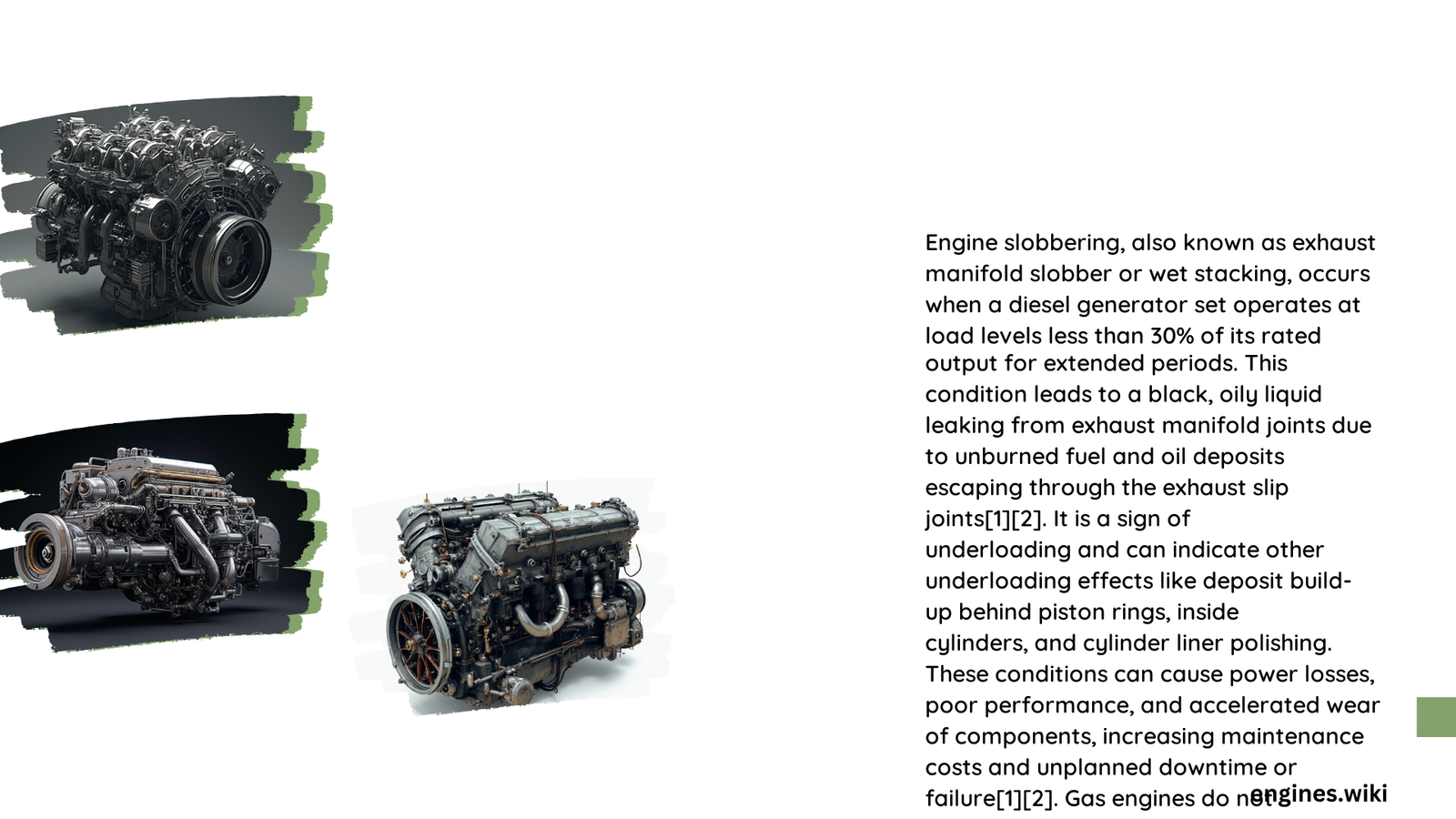Engine slobbering is a serious issue that occurs when excessive oil and fuel mixture leaks into the combustion chamber or exhaust system. This problem can lead to increased oil consumption, reduced engine performance, and potential long-term damage. Engine slobbering is often caused by worn piston rings, faulty fuel injectors, or oil viscosity issues. Understanding the causes, symptoms, and solutions for engine slobbering is crucial for maintaining your vehicle’s health and performance.
What Are the Main Causes of Engine Slobbering?
Engine slobbering can be attributed to several factors, including:
- Mechanical failures
- Fuel quality issues
- Oil viscosity problems
Mechanical Failures
- Worn or improperly sealed piston rings: This allows fuel and combustion by-products to enter the oil, leading to oil dilution and increased blow-by.
- Faulty fuel injectors: Leaky or malfunctioning injectors can cause excessive fuel inflow, resulting in incomplete combustion and fuel entering the crankcase.
Fuel Quality Issues
- Incomplete combustion: When fuel doesn’t burn completely, it can enter the engine oil, reducing its viscosity and lubricating properties.
- Biofuel concentration: In diesel engines, biodiesel can become concentrated as diesel fuel evaporates in the crankcase, leading to a more viscous lubricant.
Oil Viscosity Problems
- Oil dilution: Fuel entering the crankcase dilutes the engine oil, reducing its viscosity and ability to form a protective film.
What Are the Symptoms of Engine Slobbering?

Recognizing the symptoms of engine slobbering is crucial for early detection and prevention of further damage. Here are the key indicators:
- Increased oil consumption
- Unusual exhaust smoke
- Reduced engine performance
Oil Consumption Rates
- Rising oil level on the dipstick due to fuel and moisture mixing with the oil
- Oil consumption increase of up to 10% or more
Exhaust Smoke Characteristics
- Excessive condensation seeping from exhaust manifold joints
- White or light blue exhaust smoke
Engine Performance Metrics
| Symptom | Description |
|---|---|
| Reduced fuel efficiency | 5-10% decrease due to fuel dilution and oil degradation |
| Increased engine noise | Poor lubrication resulting in louder operation |
| Hard start or rough idle | Lack of proper lubrication and increased friction |
How Does Engine Slobbering Affect Engine Wear and Tear?
Engine slobbering can significantly impact the longevity and performance of your engine:
- Increased wear and tear: Metal components rubbing against each other without adequate lubrication cause rapid deterioration. Fuel dilution can lead to a 20-30% increase in wear on engine components like piston rings and cylinder walls.
- Higher engine temperatures: Poor lubrication results in higher operating temperatures, accelerating engine wear. Engines can run 10-20°C hotter than normal, further degrading the oil and engine components.
What Are the Solutions for Engine Slobbering?
Addressing engine slobbering requires a multi-faceted approach:
Repair Techniques
- Inspection and replacement of fuel injectors
- Piston ring replacement
Recommended Oil Types and Grades
- Use high-quality engine oils that meet the recommended specifications
- Regular oil changes within the recommended timeframes
Maintenance Schedules
- Perform regular maintenance, including oil changes and inspections of the injection system
- Follow manufacturer-recommended service intervals
How Can Engine Slobbering Be Prevented?
Prevention is key to avoiding engine slobbering issues:
Best Practices for Engine Maintenance
- Follow manufacturer recommendations for oil changes and specifications
- Warm up the engine before driving, especially on cold days
Fuel Selection
- Use high-quality fuel that meets the engine’s specifications
Operating Conditions
- Avoid aggressive driving and short trips to ensure optimal engine temperatures
What Are the Statistical Data on Effectiveness of Prevention?
- Regular oil changes and proper maintenance can reduce engine wear and tear by up to 50% and increase fuel efficiency by up to 10%.
- Addressing minor mechanical issues promptly can prevent bigger malfunctions, reducing downtime by up to 30% and additional expenses by up to 20%.
By understanding the causes, symptoms, and solutions for engine slobbering, you can take proactive steps to maintain your engine’s health and performance. Regular maintenance, proper oil selection, and addressing issues promptly are key to preventing and mitigating the effects of engine slobbering.
